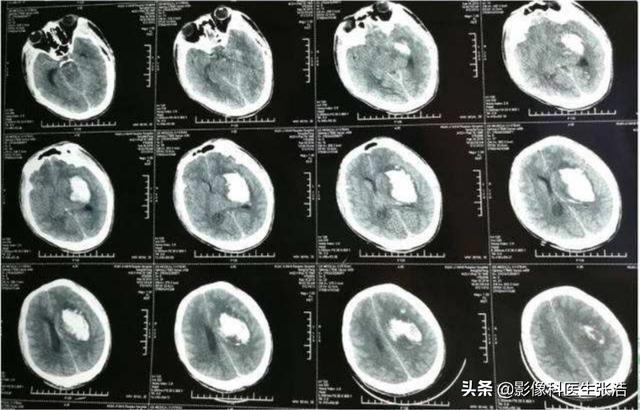What are the common symptoms of hypertension and the most common complications?
Hypertension has many complications, the most important of which is damage to vital organs, such as the heart, brain, kidneys and eyes. Today, let's talk about these vital organ injuries.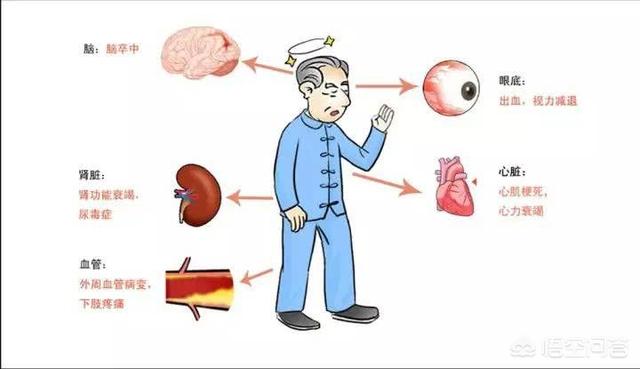
1. Heart
Uncontrolled high blood pressure is most directly damaging to the heart. Hypertension can cause comprehensive damage to the heart, such as the myocardium, coronary arteries, valves, and atria. High blood pressure can make the heart muscle become hypertrophic, can also lead to atherosclerosis of the heart blood vessels, can lead to the enlargement of the atria, can lead to degenerative changes in the heart valves. In short, when blood pressure is high, the heart is the first to suffer.
2. Brain
The most common complication of chronically elevated blood pressure that goes unchecked is stroke, although the heart is damaged across the board. Whether it is an ischemic stroke or a hemorrhagic stroke, the consequences can be catastrophic for the individual.
3. Kidney
Long-term uncontrolled hypertension can lead to kidney damage and renal insufficiency, and if left unchecked, it will eventually progress to the uremic stage. In turn, kidney damage will aggravate hypertension, and the cycle will continue, forming a vicious circle.
4. Eyes
When long-term high blood pressure is left uncontrolled, the arteries in the fundus of the eye can harden and, in severe cases, hemorrhage can occur, affecting vision.
In short, the blood pressure of hypertensive patients need to be scientifically controlled, the control of good health affected by the relatively small or minimal, not to control the disastrous consequences may occur. Therefore, everyone must pay attention to their blood pressure.
The incidence of high blood pressure in the last decade is getting higher and higher, to what extent, almost everyone will have a friend or relative with high blood pressure, but not everyone recognizes the dangers of high blood pressure, because high blood pressure itself is not a direct threat to life, and will not be particularly painful performance, most people are just dizziness, headache and other manifestations.
The image above is a CT image of a hypertensive patient who developed a cerebral hemorrhage secondary to a cerebral hemorrhage in the left basal ganglia region of the brain.
A large percentage of people only take medication when their symptoms are severe or press on, which is actually because they don't recognize the dangers of high blood pressure.
Let's talk about the complications of high blood pressure today.
(1) heart disease: heart disease is more common harm of high blood pressure, because the blood pressure of the body circulation is elevated, so the resistance of the heart to ejection of blood increased, that the heart ejection of blood requires more force, so there will be myocardial hypertrophy, cardiac stasis, and other consequences, if not controlled in a timely manner, allow the development of these diseases will eventually go to heart failure.
(2) Hypertensive nephropathy: Years of uncontrolled high blood pressure will cause damage to the kidneys, leading to sclerosis of the small renal arteries, which will lead to proteinuria, edema, low protein and other manifestations, and will lead to severe nephropathy in severe cases.
(3) Hypertensive encephalopathy: When the blood pressure suddenly rises and puts too much pressure on the skull and brain, cerebral circulatory disorders or even cerebral hemorrhage will occur, and some neurological abnormalities, such as drowsiness, confusion, etc., will occur in mild cases, and in serious cases, there will be projectile vomiting and coma, and there will also be abnormalities of the function of the limbs.
The above just mentioned the impact of high blood pressure on several important organs, in addition, high blood pressure will also form damage to blood vessels, triggering atherosclerosis, high blood pressure is also prone to cause cerebral hemorrhage and so on, these are the complications of high blood pressure.
If you are diagnosed with high blood pressure you must strictly follow your doctor's instructions for medication and watch your diet and measure your blood pressure regularly.
What are the complications of hypertension?
I have already made several presentations on the causes of hypertension, the factors affecting it, the differentiation between primary and secondary hypertension and the prevention and treatment of hypertension in Guru Quiz. Here, it is devoted to the complications of hypertension:
1, hypertensive heart disease:
(1) A history of hypertension for many years, with blood pressure mostly above 180/110 mmHg;
(ii) Left heart hypertrophy with enhanced second heart sound in the aortic office area;
(iii) When left heart failure occurs, it is initially left heart insufficiency, manifested as nocturnal paroxysmal dyspnea, and later and possibly right heart insufficiency;
2. Hypertensive encephalopathy:
(1) In patients with high blood pressure, sudden onset of severe headache, nausea, vomiting, or even convulsions and coma;
(ii) Blood pressure aggregation, up to 200/120 mmHg or more.
3. e.g. cerebral hemorrhage, cerebral vasospasm, etc. I have also already introduced these issues in Goku Q&A and described how family members can take care of hemiplegic patients, etc. They are omitted here. Welcome to check it out.
The above is for reference.

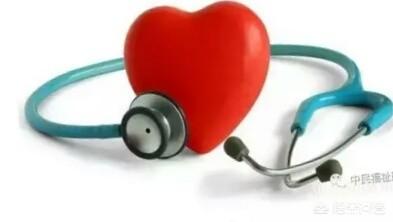
The term high blood pressure is familiar to most people and there is no one who does not know about high blood pressure. However, most people only know the term high blood pressure and do not know the meaning behind the term and the possible dangers, so the next general practitioner fresh doctor to take you a brief rough understanding to recognize the disease of high blood pressure.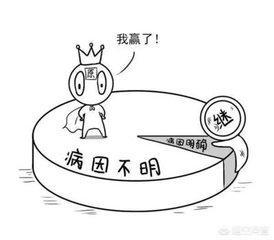
Hypertension is a series of cardiovascular syndromes caused by elevated arterial pressure in the body circulation. It is divided into primary hypertension and secondary hypertension. The so-called primary hypertension refers to hypertension for which no clear cause can be found, and it is usually believed that a variety of factors are involved in the formation of hypertension (e.g., smoking, alcohol consumption, high sodium salt diet, obesity, sedentary lifestyle, etc.). Primary hypertension is usually seen in middle-aged and older adults. Secondary hypertension is defined as a secondary increase in blood pressure with a clear cause, such as renal disease, adrenal disease (pheochromocytoma, protoalveolar syndrome, etc.), aortic stenosis, thyroid disease, obstructive sleep apnea hypopnea syndrome (OSAHS), and long-term use of medications containing licorice or long-term use of glucocorticoids. Secondary hypertension is usually seen in young people with persistent hypertension and fluctuating blood pressure, and it is possible to cure this type of hypertension by removing the primary disease.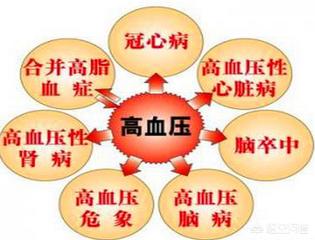
Hypertension does not affect the length of life after stable control, but long-term blood pressure persisting at a high level can cause dysfunction of various target organs, and ultimately serious complications that affect the quality of life. Meanwhile, hypertension is often combined with metabolic abnormalities such as diabetes mellitus, hyperlipidemia, hyperuricemia, etc., and is a high-risk factor for cardiovascular and cerebrovascular diseases, and its main complications are as follows: 1) Effects on the heart can increase the occurrence of angina pectoris, heart enlargement, hypertensive heart disease, myocardial infarction, arrhythmia, and other cardiovascular diseases. 2) Effects on the kidneys can lead to proteinuria and hypertensive renal insufficiency. 3) Effects on the nervous system can increase the occurrence of brain damage, and eventually cause serious complications that affect the quality of life. Effects on the nervous system It can increase the risk of ischemic strokes such as cerebral infarction and cerebral thrombosis and hemorrhagic strokes such as hypertensive cerebral hemorrhage.

In view of the fact that long-term hypertension can cause the above complications and there is no cure for essential hypertension, it is recommended that hypertensive patients should adopt a comprehensive treatment approach to keep their blood pressure within a relatively stable target value for a long period of time, reduce the risk of complications, and thus improve the quality of life, and at the same time advise hypertensive patients not to believe in the rumor that there is a cure for essential hypertension, so as to avoid delaying the treatment and resulting in irreparable damage. Popular science answers from Dr. Fresh in General Practice, welcome to express different views and opinions in the comment section below, want to know more about health knowledge, welcome to pay attention to Dr. Fresh in General Practice, and continue to bring you different health questions and answers, pictures from the Internet!
血压即The pressure exerted on the walls of the blood vessels by the blood flowing through the body's blood vessels is the same as the pressure exerted on a balloon by the airflow when blowing up a balloon, and if the pressure of the airflow is too great, the balloon will burst. Similarly, high blood pressure can cause serious damage to various organs in the body. Today, "ask the doctor" to tell you about the four common complications of high blood pressure.
High blood pressure increases the load on the heart and induces heart failure
In hypertensive patients, the heart is under greater stress. If we don't find a way to control our blood pressure, we can cause the heart to struggle to eject blood and become compensatorily "stronger". We call this change "left ventricular hypertrophy". Left ventricular hypertrophy may eventually progress to heart failure if left unintervened.
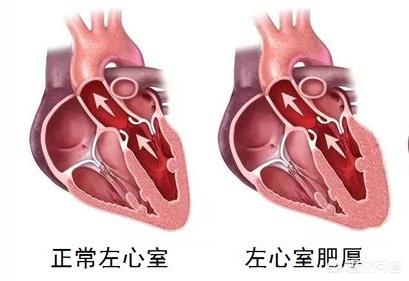
High blood pressure increases the risk of coronary heart disease
Long-term high blood pressure will hit and tear the inner lining of blood vessels, creating favorable conditions for the deposition of blood lipids (cholesterol, triglycerides, etc.) on the walls of blood vessels, and in the long run, it will be easy to developAtherosclerosis.
Once the coronary arteries on the heart have developed severe atherosclerosis, it will lead to coronary heart disease. Clinically, 83% of patients with coronary heart disease are combined with high blood pressure, and, the more severe the high blood pressure, the greater the narrowing of the coronary arteries on the heart. Therefore, stabilizing blood pressure is the key to treating and preventing coronary heart disease.Patients with hypertension combined with coronary artery disease should have their blood pressure controlled to 130/80 mm/Hg.
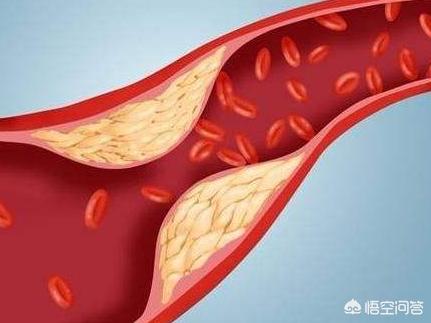
High blood pressure can cause impaired kidney function
Kidney is an organ that deals with blood all the time, and any blood problem, no matter it is hypertension or high blood pressure, may cause kidney damage. Therefore, hypertensive patients must control their blood pressure well, especially if the duration of hypertension is more than 10 years.
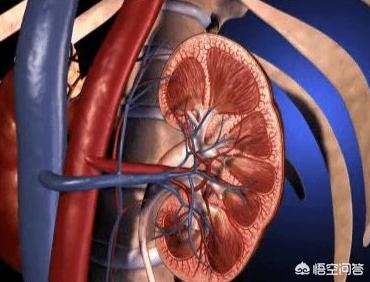
High blood pressure can damage the retina
Elevated blood pressure can involve the retina in the eye, resulting in hardening of the blood vessels in the retina and even hemorrhage, i.e., a portion of the blood seeps out of the broken retinal blood vessels and scatters on the retina. If not intervened in time, gradual vision loss of varying degrees or even blindness may occur.
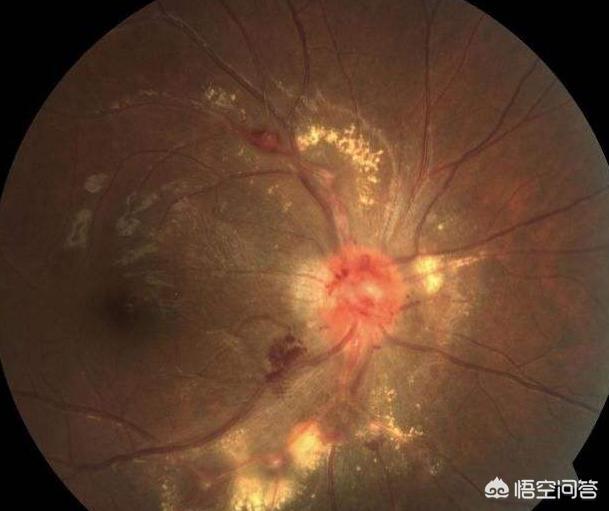
In a nutshell, hypertension affects the structure and function of several vital tissues and organs, including the heart, brain, kidneys, and retina. And.The longer the course of the disease, the more organs are involved.Therefore, it is important to be proactive in combating high blood pressure.
"Ask the Doctor" is a team of doctors from the ancient city of Xi'an.We share the most practical and scientific health knowledge for you, welcome to follow us!
Thank you for your question!
Hypertension is a disease that is widespread in the population and its main clinical manifestations areIncreased arterial pressure in the circulation, which often induces a variety of complications when interacting with a variety of high-risk elements. Organs most likely to be affectedIt's the heart, blood vessels, brain and kidneys. High blood pressure is not scary, the scary thing is the various complications that come along with it. Here's what I have to say about the complications of high blood pressure:
Prolonged heart overload causing heart failure
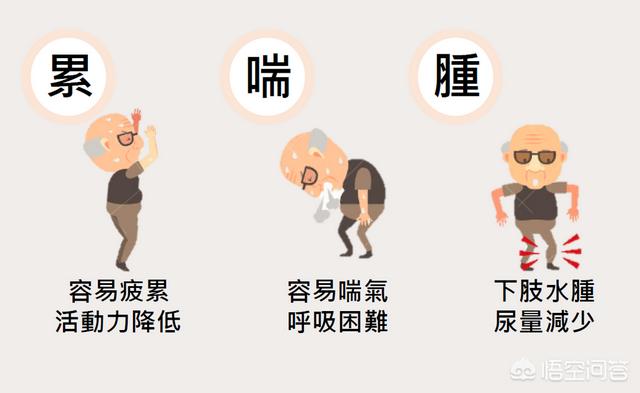
Due to the increase in blood pressure, the heart needs to pump blood with a greater pumping force, and the heart is chronically overloaded, resulting in hypertrophy of the left ventricle, which pumps blood for the body, which in turn can develop into heart failure.
Coronary atherosclerosis due to rapid blood flow impingement
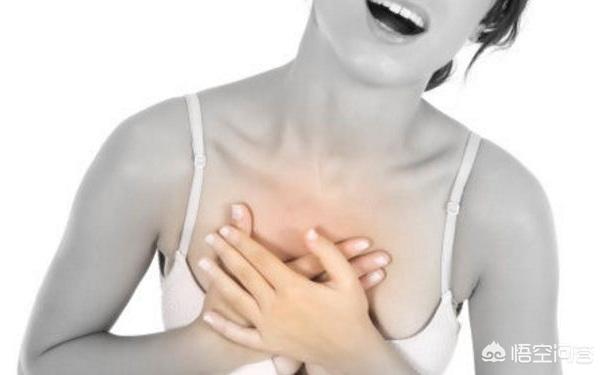
The rapid impact of blood flow on the walls of the blood vessels is likely to cause atherosclerosis, the formation of plaque, when the plaque is dislodged, it will block the blood vessels, and in severe cases, can even cause angina pectoris or myocardial infarction.
Ruptured blood vessels cause cerebral ischemia and cerebral hemorrhage
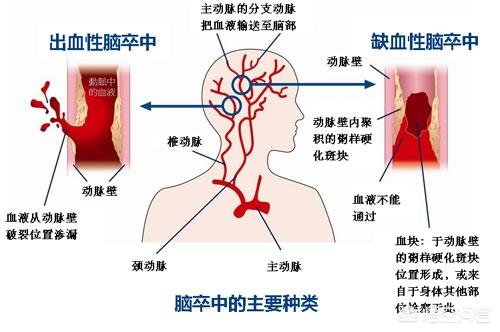
Similarly, in the cerebral blood vessels are very easy to cause atherosclerosis, when the lack of blood flow or blood clots caused by blockage, mild transient cerebral ischemia, serious ischemic stroke. When a blood vessel ruptures, it can cause a hemorrhagic stroke!
Damage to the kidneys leading to hyperalgesia
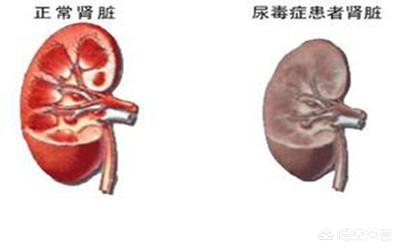
The kidneys are highly susceptible to hypertension, which damages the kidneys over time and seriously affects their filtration function. Under extreme conditions, uremia may develop.
Fundus arteriosclerosis causing fundus vasculopathy
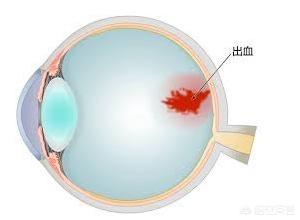
When high blood pressure has affected the fundus arteriosus, it means that most of the microscopic blood vessels throughout the body have been attacked by high blood pressure. Fundus vasculopathy includes hemorrhage and edema in the fundus. This is manifested by exudation, vision loss and blindness.
Atherosclerosis of the lower extremities leading to peripheral vascular disease
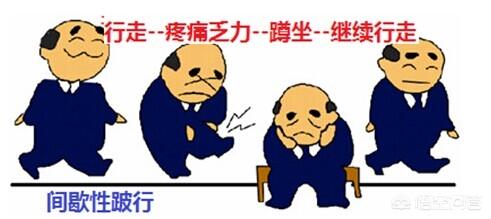
Dr. Duan's Q&A Online 🔑 Serious Consequences of Chronic High Blood Pressure 🔑
Known hypertension patients in China, according to statistics reached nearly 300 million, and hypertension as a common disease, must be standardized treatment in order to effectively reduce the damage to the target organ. And if a slack carelessness, let alone, very likely to appear predictable serious consequences.
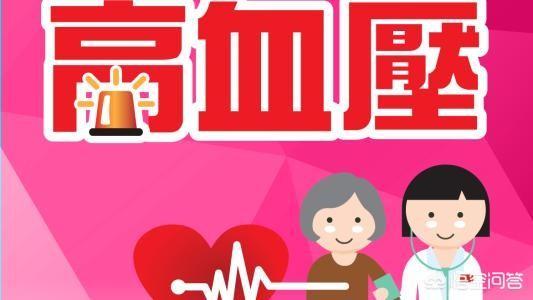
1. how to define hypertension:
Hypertension is categorized into two types: primary hypertension and secondary hypertension, and clinically, primary hypertension is mostly dominated (about 95%), which refers to cardiovascular syndromes with elevated arterial pressure in the body circulation as the main clinical manifestation. The classification of blood pressure currently used in China is shown below:

2. what factors contribute to the development of high blood pressure:
The causative factors of hypertension are generally divided into two categories: genetic factors and environmental factors:
(1) Genetic factors: Hypertension has a significant family aggregation phenomenon, whose parents are hypertensive, the probability of children suffering from hypertension will be as high as 46%;
(2) Environmental factors: such as high sodium, high fat, low potassium and other bad dietary habits; long-term high mental stress; smoking and alcoholism and other bad habits will lead to the development of hypertension.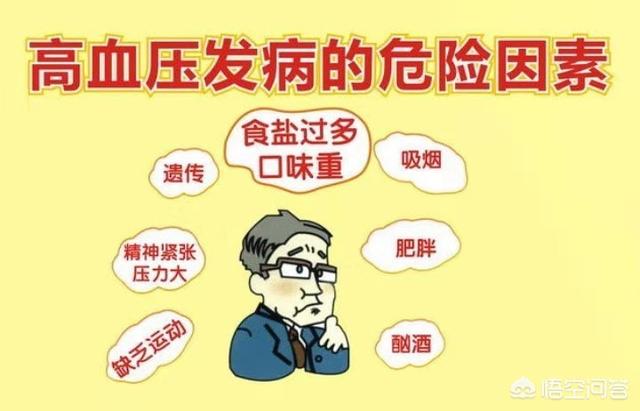
3. What are the specific dangers of untreated long-term high blood pressure:
(1) Heart: prolonged increase in pressure load will lead to compensatory enlargement of the heart muscle, hypertrophy and dilatation of the left ventricle, resulting in hypertensive heart disease and further progression to coronary heart disease and heart failure;
(2) Brain: High blood pressure causes lesions in the cerebral blood vessels, which can lead to cerebral hemorrhage, cerebral thrombosis, transient ischemic attack and other central nervous system diseases;
(3) Kidney: High blood pressure damages glomerular lesions, which affects renal function in mild cases and renal failure in severe cases within a short period of time;
(4) Retinopathy: small retinal arteries gradually turn from spasm to sclerosis with changes in blood pressure, thus affecting vision and even blindness;
(5) Peripheral blood vessels: Persistent high blood pressure that is not effectively treated can lead to the development of atherosclerosis.
It can be seen that the treatment of hypertension should follow the principle of "timely, effective, standardized and lasting", and only through better control of blood pressure can we reduce the complications and improve the quality of life of hypertensive patients.
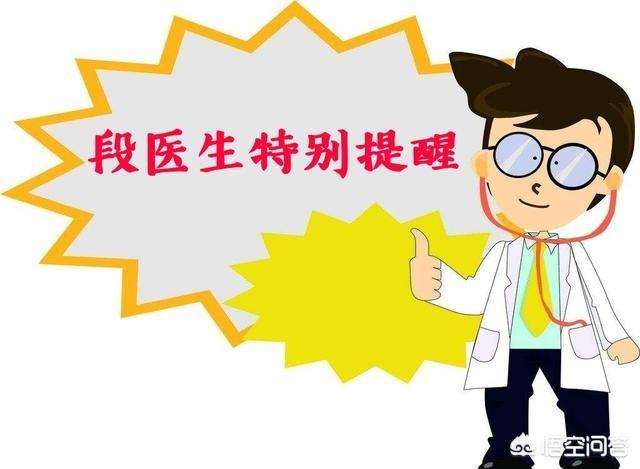
Dr. Duan specifically warned:
(1) Hypertensive complications do not develop overnight, they are the result of prolonged uncontrolled blood pressure, and they progress silently, but the results can be daunting.
(2) High blood pressure is not the "patent" of the elderly and obese, each of us should pay attention to their own blood pressure changes, timely understanding and intervention of their own blood pressure value;
(3) When hypertension is present, improvement of environmental factors (including diet, exercise, fat reduction, and emotional regulation) should be followed through, and standardized use and adjustment of medications under the guidance of a physician is recommended.
👇 Follow Dr. Duan for health and wellness! 👇
This is a good question! The reason why hypertension is so harmful is because of the functional damage or organic lesions to target organs caused by hypertension, so the fundamental purpose of controlling hypertension is to prevent complications caused by hypertension, and it is very important to understand what are the hazards of hypertension and what are the clinical manifestations for patients with hypertension to pay attention to controlling their blood pressure and to self-judgment and prevention of hypertension-induced related complications.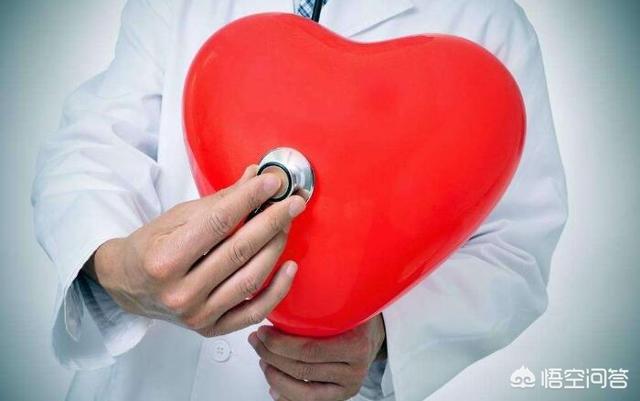
Pharmacist Li talks about health, click on the upper right red button "+ attention", more health topics to share with you!
The main complications that may arise from high blood pressure are:
Cardiac Harm: Hypertensive heart disease is mainly related to the increased burden on the heart due to elevated blood pressure. Hypertension is prone to left ventricular hypertrophy, followed by heart enlargement, arrhythmias and recurrent heart failure episodes. Specific symptoms may include palpitations, exertional dyspnea, and in severe cases, nocturnal paroxysmal dyspnea, sedentary breathing, and coughing up pink foamy sputum.
Kidney damage: generally asymptomatic in the early stage of hypertension, along with the progression of the disease, there can be an increase in nocturia and abnormal urinalysis, such as proteinuria. Patients who develop chronic renal failure may have anorexia, oliguria, elevated blood creatinine and urea nitrogen levels, metabolic acidosis, electrolyte disorders, etc.
Cerebrovascular injury: High blood pressure can cause spasm of small blood vessels in the brain, resulting in headache, head swelling, blurred vision, tinnitus, forgetfulness, insomnia and other symptoms. A sudden and significant increase in blood pressure can trigger hypertensive encephalopathy, with severe headaches, vomiting, convulsions, coma and other symptoms of intracranial hypertension. Hypertensive encephalopathy can also lead to stroke, including cerebral hemorrhage and cerebral infarction. Brain hemorrhage may be caused when hypertensive patients strain to defecate, so they should try to avoid emotional excitement and straining to defecate.
Retinopathy: This is a common complication of hypertension, with common clinical findings of fundus hemorrhage, exudation, and optic nerve papillary edema.
Atherosclerosis: High blood pressure is one of the high-risk factors for atherosclerosis, which in turn can lead to coronary heart disease, cerebral thrombosis and other problems.
Understand the dangers of high blood pressure, hurry to adjust the lifestyle, salt and oil control more exercise, quit smoking and alcohol limit mind flat, coupled with reasonable medication control, control blood pressure stable, these complications will not find the door!
Thanks for reading Pharmacist Lee's Science Q&A, and feel free to continue the discussion with more questions in the comments below!
Hypertension is one of the most common and most prevalent chronic diseases in the world. According to the data, China has more than 270 million patients suffering from hypertension, every five people in one person suffering from hypertension, of which only 10% are well controlled.
Why is high blood pressure so difficult to control? In fact, it has a lot to do with modern people's high mental stress, poor living and eating habits. Once high blood pressure develops, it will damage all the organs of the body as well as the blood vessels throughout the body, and the risk of death will double with every 20mmHg rise in blood pressure. Do you know what complications can be caused by prolonged poor blood pressure control?
Hypertension Complication 1: Coronary Heart Disease
Rising blood pressure contributes to the development of atherosclerosis, and the coronary arteries, which are the main source of oxygen and nutrients for the heart, are similarly affected. Studies have found that the risk of coronary heart disease in hypertensive patients is about 2.6 times higher than that of normal people.
Patients must be alerted to serious heart disease if they suddenly develop anterior regional pain, chest tightness and radiation to the left shoulder or left upper extremity.
Hypertension Complication 2: Cerebral Thrombosis
Poorly controlled blood pressure over a long period of time can lead to hardening of the arteries in the brain as well as the formation of blood clots, and when blood flow blocks the arteries in the brain, there is a risk of cerebral infarction. In fact, high blood pressure is the most important risk factor for cerebral infarction, and hardening and brittleness of the arteries within the brain may also increase the risk of cerebral hemorrhage.
When you experience numbness and weakness, dizziness or sudden blackness in front of your eyes, you must be alert to the possibility of transient cerebral ischemia, a condition that is likely to develop into a cerebral infarction.
Hypertension Complication 3: Kidney Disease
Kidney is the excretory organ of our body, the blood of the whole body will carry all kinds of metabolic wastes to the kidneys, when the pressure of blood vessels is too high, the wall of blood vessels becomes thicker and the lumen becomes narrower, the blood supply to the kidneys will not be satisfied. In the long run, kidney damage will easily occur, and in serious cases, it may also lead to renal decompensation and renal failure.
Epidemiologic findings indicate that chronic kidney disease due to hypertension has become the leading cause of uremia in developed countries. And once hypertension-induced nephropathy occurs, it will be irreversible for life.
Hypertensive Complications 4: Vascular Lesions
People in normal circumstances, the walls of the blood vessels are intact, when your blood pressure rises, the blood vessels will become narrow, lose elasticity, at this time if you do not pay attention to the blood vessels are very easy to rupture, life-threatening.
Hypertension Complication 5: Fundusopathy
Hypertension must focus on the fundus arteriosus because the blood vessels in the fundus are also affected by high blood pressure, and with higher blood pressure, fundopathy, retinopathy, and vision loss can occur, and in severe cases, may lead to blindness.
WKSRX:
With the progression of the disease, the blood pressure is persistently elevated, with manifestations of acidity in the heart, brain, kidneys and other target organs of the hand, which is mainly divided into the direct effect of elevated blood pressure and accelerated atherosclerosis-related complications of the manifestations.
(1) Hypertensive crisis: Due to tension, fatigue, cold, sudden stoppage of medication and other triggers, small arteries undergo strong spasm, and the blood pressure of hypertensive patients rises sharply in a short period of time, affecting the blood supply of important organs and producing critical symptoms. Signs such as headache, irritability, palpitations, excessive sweating, nausea, vomiting, pallor or flushing, and blurred vision appear. Systolic blood pressure can be as high as 260 mmHg and diastolic blood pressure over 120 mmHg.
(2) Hypertensive encephalopathy: occurs in patients with severe hypertension.
(3) Cardiac complications: there is left ventricular hypertrophy, the appearance of ventricular, atrial, conduction block and other kinds of arrhythmia, angina type, myocardial infarction type coronary heart disease, heart failure.
(4) Cerebrovascular diseases: including transient ischemic attack, cerebral infarction, cerebral hemorrhage, vascular dementia.
(5) Vascular complications: including peripheral atherosclerosis and aortic coarctation.
(6) Fundus changes: Fundus changes in hypertensive patients reflect the severity of hypertension and are categorized into four grades: Grade I: thinning of retinal arteries; Grade II: narrowing of retinal arteries with arterial cross-pressure; Grade III: hemorrhage or cotton-wool oozing from the fundus; and Grade IV: hemorrhage or oozing hemianephric papillae edema from the fundus.
(7) Chronic renal failure: Hypertensive patients slowly develop renal decompensation to failure.
This question and answer are from the site users, does not represent the position of the site, such as infringement, please contact the administrator to delete.
